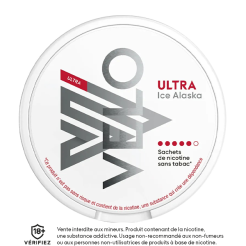How do I quit smoking during pregnancy?
- Manon's advice
- 2989 vues

Smoking during pregnancy
When a happy event is announced, it's best to do everything possible to prepare for its arrival. Smoking is a phenomenon against which the mother-to-be will have to fight to preserve her child's health as much as possible. Unfortunately for some, this addiction is too strong for them to give up smoking. In 2021, nearly 20% of pregnant women in France will still be smoking in their third trimester. An infamous figure in Europe, since it's the highest rate of any country in Europe. As we know, smoking during pregnancy exposes both mother and child to serious risks: miscarriage, ectopic pregnancy, stillbirth syndrome, premature birth... The list goes on.
Weaning yourself off tobacco during pregnancy: nicotine substitutes
To protect mother and baby, is Nicotine and Pregnancy better than Tobacco and Pregnancy? For several decades, solutions have been developed to combat the harmful effects of tobacco. Since the end of the 90s, NRTs (Nicotine Replacement Therapy) have been legalized in France, and some of them, compatible with pregnancy, have been prescribed by health professionals. Nicotine patches and lozenges, these substitutes are authorized during pregnancy and reimbursed up to 65% by the Frenchhealth insurance system. Pregnant smokers are therefore advised to stop smoking in order to protect their child's health. Health professionals recommend that they turn to nicotine substitutes to overcome their dependency and limit the consequences for the fetus. To be effective, however, nicotine replacement products must be used correctly. Contact your doctor or pharmacist for the best possible guidance.
Nicotine and pregnancy: a controversial debate?
Since the advent of nicotine replacement products, nicotine has been at the heart of a controversial debate. Many believe that nicotine is just as harmful as tobacco. But it's cigarette smoke that's responsible for all tobacco-related illnesses, not nicotine. Nicotine's main effect is to induce a strong dependency. Although this confusion is widespread in public opinion, the fact that a pregnant woman uses these substitutes is also controversial, especially when it comes to the effects on the foetus.
And yet, all studies have shown that nicotine replacement products are far more effective during pregnancy than cigarettes: they considerably increase the chances of quitting smoking. The use of these medical devices therefore offers a real chance for women to wean themselves off smoking during pregnancy. As far as effects on the foetus are concerned, data are lacking for obvious ethical reasons. However, isn't it better to limit exposure of the foetus to an addictive molecule rather than to hundreds of lethally toxic substances?
Overcoming tobacco addiction has long been, and still is, a long battle for smokers wishing to rid themselves of the harmful effects of cigarettes. For pregnant women, weaning themselves off smoking during pregnancy is essential to protect the unborn child. But how can pregnant women quit smoking? In this article, we'll try to answer all your questions.
Nicotine pouches for smoking cessation during pregnancy
In the event of smoking cessation failure or difficulties with first-line NSTs, pregnant smokers also have the option of turning to other nicotine substitutes such as nicotine pouches. These devices are emerging tobacco-free* products. They enable you to satisfy your nicotine cravings wherever you are, whenever you want, and with the utmost discretion, without smoking up those around you, as pouches nicotine devices give off neither smoke nor vapour. They slip under the upper lip and release a chosen dosage of nicotine (up to a maximum of 20 mg per pouch) between 20 and 60 minutes, depending on the brand.
Although no scientific studies have yet been carried out on the effects of pouches nicotine on pregnant women, the German Federal Institute for Risk Assessment (BfR) advises against its use, and reminds us that breastfeeding should be combined with complete nicotine withdrawal.
However, nicotine substitutes are not incompatible with pregnancy when it comes to women who already smoke, starting to wean themselves off smoking by replacing their cigarettes with less harmful products. Numerous health experts confirm that nicotine replacement therapies not only have reduced health risks, but also offer pregnant women a better chance of permanently giving up cigarettes and their well-known harmful effects.
In conclusion, although nicotine replacement therapies are compatible with pregnancy, it is clear that total cessation (of both tobacco and nicotine) remains the best option to ensure the health of both mother and child.
* The nicotine contained in this product is highly addictive. Its use by non-smokers is not recommended. Exclusively intended for sale to adults.



